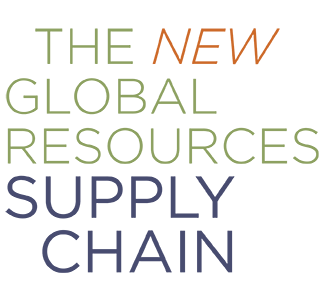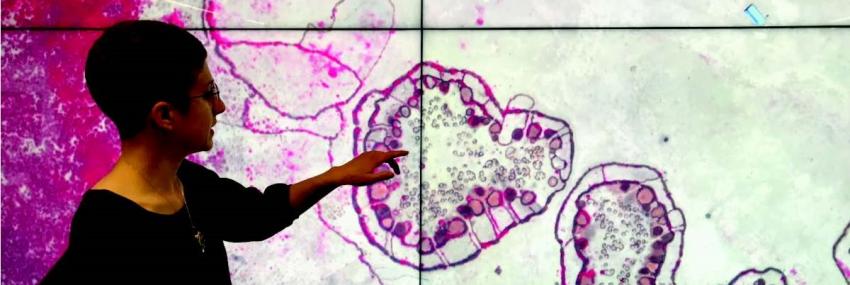Event Logistics
Registration is closed for this event.
Contemporary source materials like news, government records and information, and economic and geospatial data are vital to original scholarly research in the humanities and social sciences. Historically, research libraries have ensured that the global information “supply chain” served researchers well. But since the advent of digital media and the web, money, politics and technology have altered the supply chain in ways that complicate the role academic libraries play in provisioning materials.
The 2018 Global Resources Collections Forum, in Chicago on May 17-18, will explore how CRL and its community can adapt to this new environment. The Forum, held in conjunction with CRL's 2018 Council of Voting Members meeting, is an opportunity for representatives of CRL libraries to help shape CRL's programs and strategic agenda.
Meeting Location
Downtown Chicago: University of Chicago Gleacher Center 450 North Cityfront Plaza Drive
CRL has prepared a Meeting Area Guide
Accommodations
CRL has arranged for special rates at the Hyatt Regency Chicago, 151 East Wacker Drive.
Online streaming
Live online streaming to the presentations is also available. See the online access option on the registration form.
Program Agenda
Session I: Transformation of the Supply Chain Thursday, May 17,1:30-5:00 p.m.
How documentation and data critical for research are produced, managed and distributed today, and how new actors in the information world challenge traditional library roles and longstanding methodologies.
Archives, Access, and the Politics of Information in Africa Derek R. Peterson, Professor of History & African Studies, University of Michigan.
- Recording
Drawing upon his preservation work in Uganda, recent MacArthur Foundation Fellowship awardee Derek Peterson discusses how changing political agendas impact access to government records in Africa. He will explore why today archives—and other sites of memory—have been left to decay, and why open access remains a politically sensitive question in Uganda and other places where a traumatic and divisive past threatens the contemporary order.
The LexisNexis Effect: The Metamorphosis of Critical Data Providers Sarah Lamdan, Associate Professor & Faculty Services Librarian, CUNY School of Law
- Download presentation
- Recording
- One of the first major publishers of news and legal information to embrace digital media, LexisNexis has now expanded horizontally into analytics, risk management, surveillance, and cloud services. The move exemplifies how data corporations are evolving in ways that may be problematic for academic research.
Data, Platforms and the Global Data Supply Chain Jill Blaemers, Senior Editor, Data-Planet, SAGE Publications
- Download presentation
- Recording
- SAGE's recent acquisition of Data-Planet, a vast repository of global statistical data, will bring the gathering and curation of primary data together "under one roof" with scholarly publishing. Richard Landry, founder of Data-Planet, will discuss how the acquisition might leverage the capabilities of SAGE's scholarly communications platforms, and the implications for academic access to data and research.
Some Reflections on the Changing Knowledge Supply Chain David Marshall, Executive Vice Chancellor, University of California, Santa Barbara, and member, CRL Board of Directors
Recording
Reception 5:00-7:00 p.m.
Attendees are invited to a reception in the Gleacher Center, immediately following Session I. Recipients of the 2018 CRL Primary Source Awards will be announced at the reception.
Session II: Researchers and Their Sources Friday, May 18, 9:00-12:00 noon
Continental breakfast 8:30-9:00 a.m.
The technical, economic and political developments affecting researchers' ability to access and mine digital documentation and data.
Big Data, the Cloud and Academic Research Clifford Lynch, Executive Director, Coalition for Networked Information (CNI)
- Recording
Lynch's excellent recent article “Stewardship in the ‘Age of Algorithms”, reveals how the migration of knowledge to the cloud creates a "black box" problem, and how that problem undermines trust in source materials for scholarly research.
Social Science Research and the Challenges of Big Geospatial Data Julie Sweetkind-Singer, Head, Branner Earth Sciences Library and Map Collections, Stanford University Libraries.
- Download presentation
- Recording
How satellite imagery and large geospatial datasets are being used as source materials for scholars in a variety of disciplines, and the new types of library support they require.
"Smart” Farming, the Privatization of Information and the Implications of Data-driven Agriculture Irena Knezevic, Assistant Professor in Communication, Culture and Health, Carleton University
- Download presentation
- Recording
Data-driven, “smart” farming promises to revolutionize agriculture, but benefits have been uneven. Big Agra behemoths like Monsanto and Syngenta are amassing troves of proprietary data critical to research and the food supply, raising a multitude of new questions about privacy, ownership of data, and cultural congruency. Dr. Knezevic will discuss these trends and concerns, and their implications for agricultural and social science research.
Arcadia and the New Area Studies Funding Landscape Virginia Steel, University Librarian, University of California, Los Angeles, and Chair, CRL Board of Directors
- Download presentation
- Recording
As government humanities funding retreats Arcadia Fund, a young U.K.-based philanthropy, is pioneering new approaches to heritage documentation and the preservation of cultural evidence. Arcadia has supported new-model projects ranging from the British Library’s Endangered Archives Programme to the UCLA Library’s International Digital Ephemera Project.
Session III: Emerging Library Responses Friday, May 18,1:30-3:30 p.m.
How research libraries are responding to the new supply chain and research practices.
Harvesting Web Content and Data from Emerging Regions: a Status Report Jeffrey Garrett, Independent Consultant
- Download presentation
- Recording
- Based on a recent Mellon Foundation-funded examination of major area studies web archiving efforts, commissioned by CRL, Garrett will report on the benefits, impact, limitations and potential of the programs, and suggest how the ongoing capture and archiving of born-digital source materials for area and international studies might be sustained.
The "Post-custodial" Model for Preserving At-risk Archives in Latin America Melissa Guy, Nettie Lee Benson Librarian and Director, Nettie Lee Benson Latin American Collection, University of Texas at Austin
-
How the Benson Center’s experience with the National Police Archives in Guatemala addressed the ethical and political challenges of preventing loss of critical documentation due to suppression and economic unsustainability.
Panel discussion: Adapting to and Exploiting the New Supply Chain Pamela Graham, Columbia University; Jeff Kosokoff, Duke University; Sarah Sussman, Stanford University; Caitlin Tillman, University of Toronto
- Recording
Moderated discussion on the issues and opportunities for research libraries surfaced in the Forum presentations, and on how CRL programs might be strengthened and/or modified to address those issues and opportunities.
Wrap-up Bernard Reilly, CRL President
Recording



